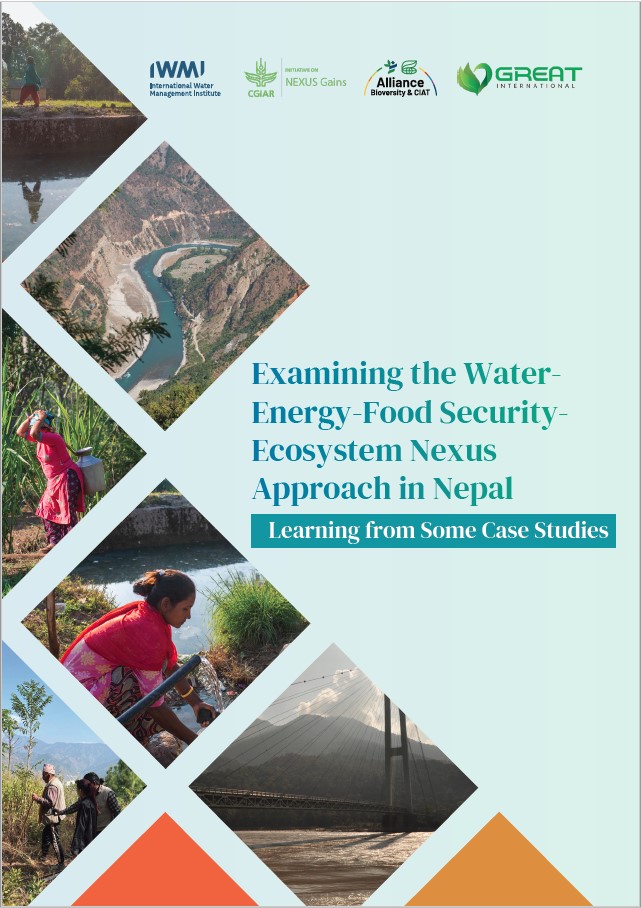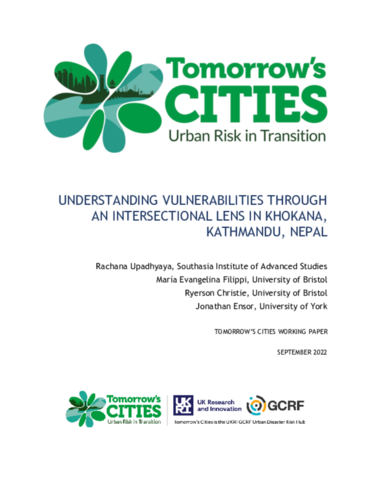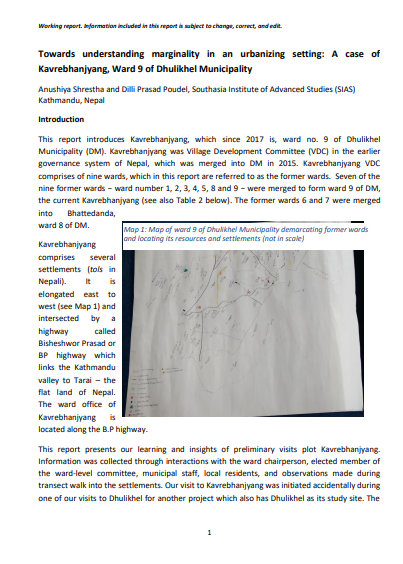Author(s): Netra Prasad Timsina, Dilli P. Poudel, Rojani Manandhar and Binod Adhikari
Publisher: Tomorrow’s Cities
Type: Working paper
March 2022
Abstract:
Being one of the top ten fastest urbanizing countries in the world with almost 60% urban areas, Nepal and mostly Kathmandu valley (KV), is undergoing rapid urban transition of spatial, demographic and economic changes, especially after the restoration of democracy in 1990 and subsequent political turmoil and changes. As a capital city with opportunities like access to education, jobs, health facilities and others, KV has been constantly pulling people from different parts of the country that led to densification of the city cores and uncontrolled urban sprawl, leading to unplanned growth of the built-up areas in the peri-urban landscape. This working paper, taking a case from a southern settlement of KV called Khokana, analyses the current trend of urbanization in KV with a reference of land use in general, and examines the responses from the local Newar communities as part of the tension and contradictions brought by the urbanization process and development interventions there in. Based on ethnographic fieldwork and review of literature, this study found that there is increasing demand of land creating speculative rise in land prices espoused by the infrastructure development projects being implemented by the federal government. Ultimately, the traditional place and culture are threatened so is the alienation of local people from their land, impacting their livelihood. Also, these development projects do not have resilient plans for their negative impacts in case of natural hazards, risking the achievement of resilient development in tomorrow’s cities.







